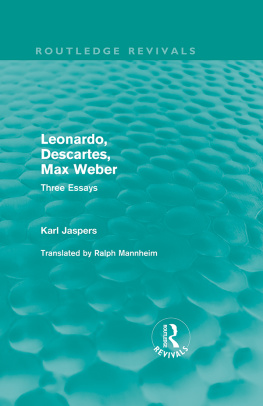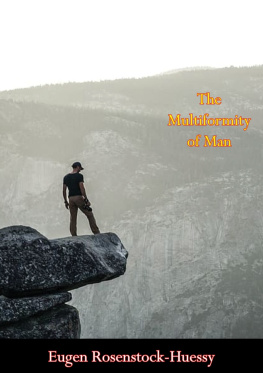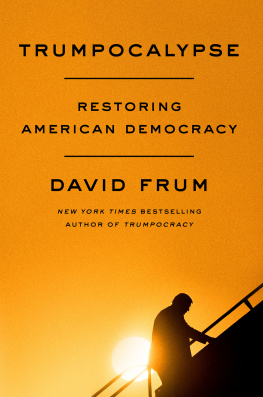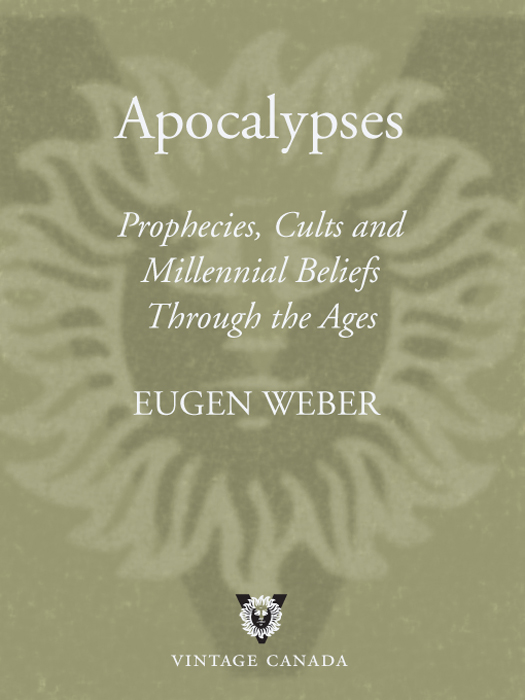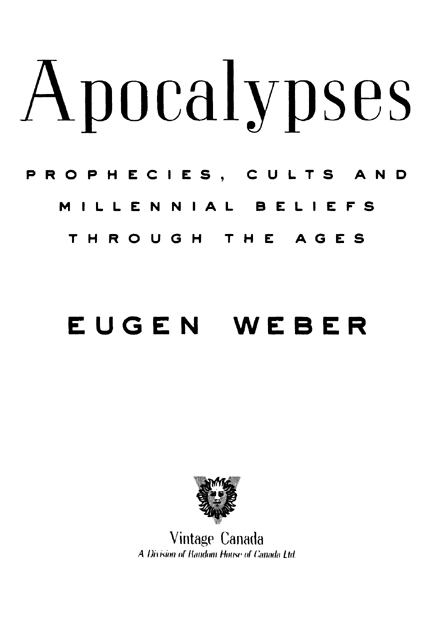1999 by Eugen Weber
All rights reserved under International and Pan-American Copyright Conventions. No part of this book may be reproduced in any form or by any electronic or mechanical means, including information storage and retrieval systems, without permission in writing from the publisher, except by a reviewer, who may quote brief passages in a review. Originally published in 1999 by Random House of Canada Limited, Toronto.
Canadian Cataloguing in Publication Data
Weber, Eugen, 1925
Apocalypses: prophecies, cults and millennial beliefs through the ages (The Barbara Frum lecture series)
eISBN: 978-0-307-36618-4
1. Apocalyptic literature History and criticism.
2. Millennialism History. 3. Prophecies History.
4. Cults History. I. Title. II. Series.
BT 876. W 42 1999a 291.23 C 99-931176- X
v3.1
For Jacqueline
My first, last, everlasting day
CONTENTS
1
INTRODUCTION
That day, when sent in glory by the Father,
The Prince of Life his best elect shall gather;
Millions of angels round about him flying,
While all the kindreds of the earth are crying,
And he, enthroned above the clouds, shall give
His last just sentence, who must die, who live.
HENRY VAUGHN
W HEN the University of Toronto invited me to deliver the 1999 Barbara Frum Lecture, I was asked, appropriately enough, to talk about fins de sicle. The more I worried that particular bone, however, the less meat I found on it. Centuries, in our calendric sense, appear to be an esoteric sixteenth-century invention, a hesitant usage of the seventeenth century. The special attention focused on a centurys end, with the halo of references that we associate with the turn of the nineteenth century into the twentieth, was a one-shot affair. Like our own centurys tail end, that of the eighteenth century, and of every other, attracted no endist label; anyone tackling fins de sicle in the plural would have gathered a very sparse harvest.
Yet ends and beginnings played a large part in humanitys experience of itself, not least in that Judeo-Christian tradition that forms the backbone of Western history from Asia Minor to the Pacifics shores. Hebrew history plunges its roots in the Pentateuch; the history of Christendom is irrigated by the New Testament, which culminates in the book of Revelation. Apocalypsethe revelation or unveiling of the worlds destiny and of mankindshas fascinated Jews and their Christian offspring at least for the last 2200 years.
Christians and Jews knew, or thought they knew, how the world began, and had a fair idea how it was supposed to end, though precise circumstances remained debatable. Knowledge of the end affects the terms and manner of progression to it. For a long time, Christian history developed in the concurrence of prophecy and interpretation within a destiny that had been foretold. Apocalypse and the thousand-year millennium that would precede Christs Second Coming (or in some versions follow it) were major parts of this process, and loomed incommensurably larger than calendric dates. Indeed, the measuring of worldly time was mainly relevant insofar as it served divine timing.
The Christian year began with Advent: the weeks that lead up to the Incarnation, Passion, and Resurrection of Christ. Liturgically, it does so still. Now, as ever, the first familiar act celebrated at Christmas and at Easter is only an introduction to the climactic conclusion, when the long struggle between satanic darkness and divine light is at last resolved in the triumph of good over evil. Advent may lead up to the birth of Christ, but it culminates in his Second Coming. And that is what the rite, the lessons, and the sermons of the rite are about: the judgment to come, and before it the Son of Man coming in a cloud with great power and glory, and the terrors that precede his coming, and the magic interlude between his preliminary and his final victory over Satan.
That is what people were exposed to, one generation after another during hundreds of years; that is what they grew up and grew old regarding as history, and as premonitory history, as real as the seasons were real and as sure. This whole scenario entered the language, the mindset, the store of common references, and aroused great passion and controversy. When, gradually, after the seventeenth century, it began to seep out of educated consciousness, it did so only partially and incompletely. That being so, one may well wonder why a motif and motivating agency so strong and so pervasive was for so long ignored in modern times, especially by historians.
Just thirty years ago, Christopher Hill began his Riddell Lectures of 1969 with a similar remark that sheds light on my question. HistoriansHill calls them intellectual snobshave ignored the lunatic fringe that believed in the imminence of the end and the necessary preliminary of Antichrist, paying no heed to Milton, Cromwell, Newton, and so many others who shared a belief in the imminent end of the world. Great historian of seventeenth-century England that he is, Hill saw the need to look with attention on beliefs of that time because beliefs influence and inflect actionas they encouraged Cromwell, for instance, to readmit Jews to England in hope of advancing the time of the Lords return. Yet Hills scholarship characterized, and hence intellectually marginalized, the believers he studied as a lunatic fringe. That was not so until the seventeenth or even the eighteenth century, and many eighteenth- and nineteenth-century reformers would have to be counted among the lunatic fringe: Lord Shaftesbury and his friends, the supporters of Jewish emancipation and of Zionism, and abolitionists who, in England and North America, eventually brought the slave trade to an end.
Prophecies make little sense to rational modern scholars and they embarrass advocates of a Christianity that, in the past two hundred years, has learnt to present itself as rational too. Before the eighteenth century ended, The Holy Bible Adapted to the Use of Schools and Private Families (Birmingham, 1783) had omitted most of Pauls epistles and the whole book of Revelation as too incendiary. In the following century, textual criticism cleared most of the supernatural out of Christian beliefs, or explained it If some people dont think as we, the educated, think, it must be because they are uneducated, poor, or crackpots.
They may, on the other hand, be sociologically all right and simply mistaken. Or they may not be mistaken at all. Condescension is not the right approach. The Oxford Dictionary of the Christian Church arrived at that conclusion. Conceived before the Second World War, its first edition consigned millenarianism to the dustbin of history. Published in 1997, on the millenniums eve, the third edition reveals the luxuriant growth of millenarianism in Asia, Africa, and South America. History, Hill reminds us, is not an exclusively rational process and, in any case, one mans reason is another mans nonsense. I have always been interested in the reasons of unreason, or of what others denounce as unreason. So, when the University of Toronto suggested fins de sicle, I turned to apocalypses.
I had little apprehension of the topic before I looked into it, and no scholarly acquaintance with it. But if curiosity kills cats, it nourishes historians. I went back to the Bible, I read hundreds of the thousands of books bearing on the subject, and the more I read the more fascinating the topic looked. I hope that the following pages convey some of the excitement of the chase and of discovery.



